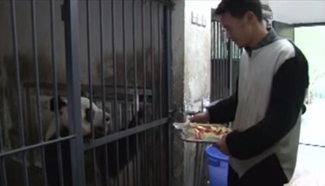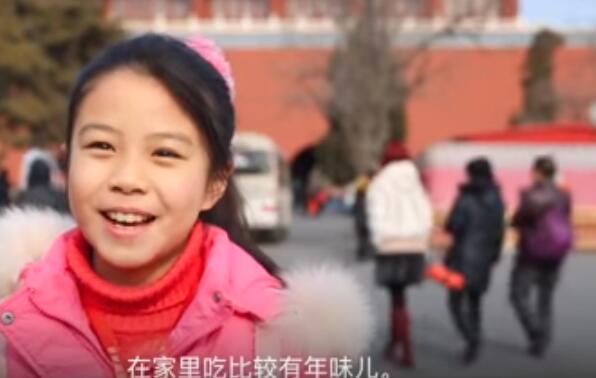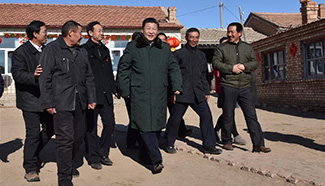YINCHUAN/HEFEI, Jan. 27 (Xinhua) -- As the Year of Rooster approaches, Chinese families will get together to celebrate, but some people will not spend the holidays at home.
This does not, however, make the holiday any less important.
ON THE WAY
Song Wenyuan, 52, checked his train ticket for the umpteenth time. His journey back home would take more than 20 hours, and he did not want to loose the ticket.
The coal miner works in northwest China's Ningxia Hui Autonomous Region.
"I take the train from Ningxia to Hebei, then another to Shandong, then I take a coach," he said.
The mine gives its workers 600 yuan (about 87 U.S. dollars) to cover transportation, but Song wanted to save as much of his bonuses as possible. "A berth is 88 yuan more than a seat," he explained. "I'd rather save the money for food and liquor. I work underground, so I need liquor to keep myself warm."
Zhao Xinguang moved to Yinchuan, capital of Ningxia, in 2016 to sell fruit. "It is back-breaking work and I don't earn much," he told Xinhua. "But I have now seen more of the country and gained experience."
"Spring Festival marks an end to the previous year," he said. "Good or bad, I will work hard next year. For now, I just want to see my family."
AT WORK
Huang Weirui will spend his third Spring Festival at the tiny Qinghai Lake station. His only companions during the holiday are a bed, the signal control equipment and a plant.
"Since June, passenger trains no longer stop here," he said. The change made him more lonely.
Due to safety legislation, Huang is not allowed to use his cellphone at work. He stares at the signal box, while wind howled outside.
After lunch, Huang decided to make some dumplings. "Even if I am alone, I should abide by the tradition," he said. "My elder son has graduated from university, and the younger one is still at school. Thinking about them, I feel less lonely."
In east China, Luo Yuanyuan is patrolling the Bohai Sea in a police vessel. Like Huang, he has spent three Spring Festivals away from home.
"I miss my parents, but this is my job," he said. Last year, he was stationed on the ship for more than 200 days.
He hopes that in the new year he could meet a nice girl, someone he could take home for next Spring Festival. "It is hard, you know, I haven't got the time to find one."
His colleague Chen Cunben's daughter painted a picture for her father as New Year gift. She called the picture "Waiting."
BEHIND BARS
For the first time Li Ming (not his real name) will hold his daughter.
"She was born two months after I started my prison term," he said. He was sent to Qianchuan penitentiary in east China's Anhui province in October 2014 for violent crimes.
Before the Spring Festival, the prison organized its own festival party, and allowed six prisoners to meet their relatives.
"I feel sorry for my wife and daughter," Li said, fighting back tears. "I will take good care of them when I get out."
Those who couldn't meet their loved ones choose to write to them.
"I am good in here, and I have learned new skills," Zhang Wei (not his real name) wrote to his mother, the first time he has contacted her in four years.
"During the holidays prisoners are likely to become emotional," said Chen Mingfu, vice head of the prison. "With all the activities we could not only help them through this difficult time, but also give them a lesson."
WAITING
A handful of leeks, several potatoes and some meat are all the old couple will have for dinner on the eve of Spring Festival. Their children will not be back for the holiday.
"They are all married and not wealthy, and they live far from me," said Feng Jinhua, the wife.
They live in Xiatan Village, Zhongwei, Ningxia. It used to be a thriving dock, bustling with travellers. After a railway was built nearby, the dock was abandoned, and so, too, was the village.
Today only 30 households are left, mostly elderly couples.
But even that obscure place could see improvement of life.
In 2006 cables were set up so that villagers were able to use electricity, in 2013, they had a road to the outside. Tourists began to arrive.
"It would be good if the government could attract more tourists," said Feng. "After 20 or 30 years, when we are gone, the village could be preserved as a cultural icon."














